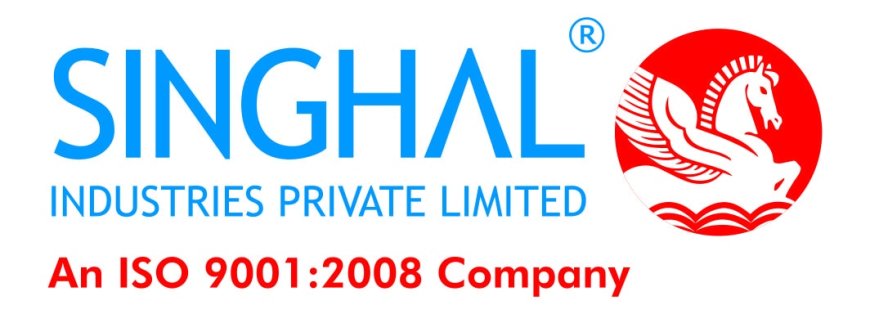The Impact of UN Certified Bags on Global Issues

Introduction to UN Certified Bags
UN certified bags are designed and manufactured to meet specific standards set by the United Nations for the safe transport and handling of hazardous materials. These bags are crucial in maintaining safety and compliance across various industries, including chemical, pharmaceutical, and agricultural sectors. Their certification ensures that they adhere to rigorous safety and environmental standards, addressing critical global issues related to environmental protection, public health, and international trade.
Understanding UN Certification
The UN certification for bags involves a set of rigorous standards outlined in the UN Recommendations on the Transport of Dangerous Goods. These guidelines ensure that bags used for transporting hazardous substances can withstand the stresses of transportation and handling without leaking or degrading. To achieve certification, bags must pass various tests for strength, durability, and containment. This certification is vital for mitigating risks associated with hazardous materials.
Significance of UN Approved Bags
UN approved bags are pivotal in reducing environmental impact and protecting public health. They play a critical role in:
1. Preventing Leaks and Spills: By adhering to stringent standards, these bags prevent leaks and spills of hazardous materials during transportation, which can otherwise lead to environmental contamination and health hazards.
2. Ensuring Safe Handling: The robust design of UN approved bags ensures that hazardous materials are securely contained, reducing the risk of accidents during handling and transit.
3. Compliance with Regulations: Using UN approved bags ensures compliance with international regulations, avoiding legal issues and potential fines.
Impact on Environmental Protection
The use of UN certified bags has a significant impact on environmental protection:
1. Reducing Pollution: Proper containment of hazardous materials prevents leaks and spills that can lead to soil and water pollution. This is crucial in preventing the contamination of natural resources and preserving ecosystems.
2. Minimizing Waste: By using durable and reliable bags, companies can reduce the frequency of spills and leaks, thus minimizing the need for cleanup and waste disposal. This contributes to more efficient waste management practices.
3. Promoting Sustainability: UN certified bags are often designed with environmental considerations in mind, including recyclable materials and minimal environmental impact in their production processes.
Benefits to Public Health
The health benefits of using UN certified bags are profound:
1. Preventing Exposure: By containing hazardous materials securely, these bags prevent exposure to toxic substances, protecting workers, consumers, and communities from harmful effects.
2. Enhancing Safety: Proper containment and labeling reduce the risk of accidents and spills, contributing to safer working environments and reducing health risks associated with handling dangerous goods.
3. Supporting Emergency Response: In the event of an accident, UN certified bags help in effective and safe management of hazardous materials, facilitating quicker and safer responses from emergency services.
Global Trade and Compliance
In the context of global trade, UN certified bags are essential for:
1. Meeting International Standards: Many countries require compliance with UN standards for the import and export of hazardous materials. Using certified bags ensures that businesses can operate across borders without facing regulatory issues.
2. Facilitating Trade: Compliance with international regulations facilitates smoother trade processes and reduces the likelihood of customs delays or penalties.
3. Building Trust: Businesses that use UN certified bags demonstrate their commitment to safety and regulatory compliance, building trust with clients and partners in the global market.
Role of UN Certified Bags Manufacturers
UN certified bags manufacturers play a crucial role in:
1. Ensuring Quality: Manufacturers must adhere to strict quality control measures to ensure that their bags meet UN certification standards. This includes rigorous testing and compliance with safety regulations.
2. Innovating Designs: Manufacturers continually innovate to improve the design and functionality of certified bags, incorporating new materials and technologies to enhance safety and environmental performance.
3. Supporting Industry Standards: By maintaining high standards in their manufacturing processes, certified bag producers support industry-wide efforts to improve safety and environmental protection.
Choosing a Reliable UN Bag Supplier
Selecting a reputable UN bag supplier is essential for ensuring the reliability and effectiveness of certified bags. Consider the following factors:
1. Certification and Compliance: Verify that the supplier’s products are genuinely UN certified and meet all necessary regulations and standards.
2. Reputation and Experience: Choose suppliers with a proven track record in providing high-quality certified bags and a reputation for reliability in the industry.
3. Customer Support: Look for suppliers who offer excellent customer support and can provide guidance on product selection, handling, and compliance.
Challenges and Solutions
Despite their benefits, there are challenges associated with UN certified bags:
1. Cost: Certified bags can be more expensive than non-certified alternatives. However, this cost is often offset by the benefits of reduced risk and compliance with regulations.
2. Availability: Finding certified bags that meet specific requirements can be challenging. Working with established suppliers and manufacturers can help ensure access to the right products.
3. Regulatory Changes: Regulations and standards may evolve, requiring updates to bag designs and certifications. Staying informed about regulatory changes and working with knowledgeable suppliers can help address these challenges.
Future Trends in UN Certified Bags
The future of UN certified bags is likely to involve several trends:
1. Advancements in Materials: New materials and technologies are being developed to enhance the safety and environmental performance of certified bags.
2. Increased Focus on Sustainability: There will be a growing emphasis on sustainability, with manufacturers and suppliers focusing on eco-friendly materials and processes.
3. Enhanced Compliance Measures: As regulations evolve, there will be a greater focus on ensuring that certified bags meet the latest safety and environmental standards.
Conclusion
UN certified bags play a vital role in addressing global issues related to environmental protection, public health, and international trade. By ensuring the safe transport and handling of hazardous materials, these bags help prevent pollution, protect public health, and facilitate compliant global trade. The role of UN certified bags manufacturers and suppliers is crucial in maintaining high standards of safety and compliance. As industries continue to evolve, the ongoing development of these bags will contribute to improved safety, sustainability, and regulatory adherence across the globe.
FAQs on UN Certified Bags and Their Impact
1. What are UN certified bags?
UN certified bags are specialized containers that meet stringent safety and performance standards set by the United Nations for the transport and handling of hazardous materials. These bags are designed to prevent leaks, spills, and contamination, ensuring that dangerous goods are contained safely throughout their journey.
2. What does UN certification entail?
UN certification involves a series of rigorous tests and evaluations to ensure that the bags can withstand the stresses of transportation and handling without failing. These tests check for strength, durability, and leak-proof characteristics. Only bags that pass these tests are granted UN certification, which is essential for compliance with international regulations.
3. Why are UN approved bags important?
UN approved bags are crucial for:
1. Safety: They prevent the leakage and spillage of hazardous materials, protecting both people and the environment.
2. Regulatory Compliance: They ensure that companies meet international safety standards for transporting dangerous goods.
3. Environmental Protection: They help in minimizing environmental contamination by containing hazardous substances effectively.
What's Your Reaction?


























